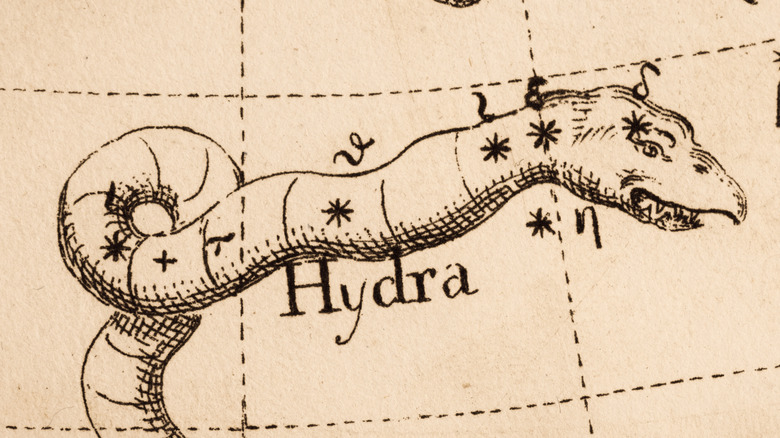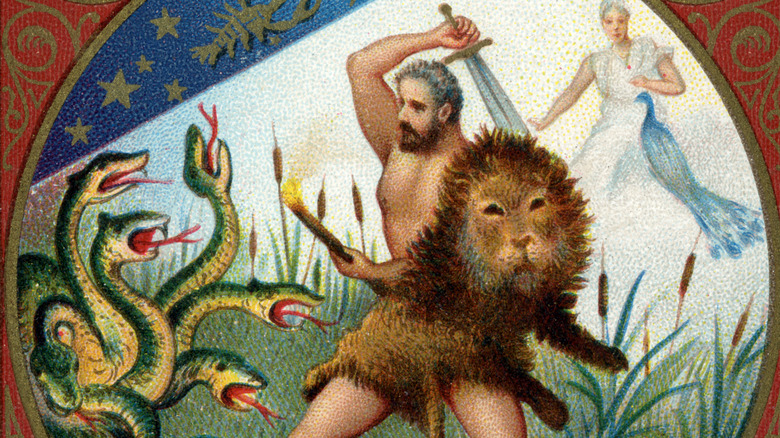The Mythology Behind The Hydra Constellation Explained
Over the centuries, mythology has always had heroes fighting valiant battles against creatures that devour lesser beings. Bellerophon fought the Chimera. Perseus was able to avoid being turned into stone by the Medusa's gaze. He also saved Andromeda from becoming a sacrifice to a giant sea creature — she became his wife soon after. These are some of the greatest heroes in Greek mythology, per Theoi.
The point of these tales is that they paint a picture of heroes facing danger without hesitation. They are serious tales with the dangers of the situations being stressed. The monsters are extremely dangerous, and one wrong move would lead to the demise of the heroes. The audience would listen or read with rapt attention, waiting to find out what the outcome was. These stories also included tragedies like a hero killing his family.
The myth behind the Hydra constellation is a fascinating one that also includes an element of comedy, although it was likely an unintentional one.
Hercules felt crabby while fighting the Hydra
Hercules had to complete 12 tasks, or labors, as penance for killing his family in a rage that was induced by the goddess Hera. One of them was to kill the Hydra, a serpent with many heads — the exact amount changes in different versions of the myth, ranging from a hundred to nine, per Britannica. Nine is usually the accepted amount. The Hydra belonged to Hera, and it was a big challenge due to the fact that when someone cut off one of its head, two more would grow in its place. That gave it a distinct advantage.
The comedic element is when Hera sent a crab, of all things, to try to pinch Hercules' heels while he fought the Hydra. Picture it: This massively muscular man is tangling with a fearsome creature while an annoying crab is pinching at his heels. It is just a silly image. Hercules ignored the crab, crushing it under his foot, and got help from Iolaus, who would cauterize each Hydra head to keep others from growing. Finally, Hercules won and put the main head under a rock. Hera's interference had no effect on the demigod's ability to carry out his task.
When you gaze at the Hydra, it takes up a good portion of the night sky. You can see it in the winter and some spring months in the Northern Hemisphere. Just make sure no crabs come at your heels.

